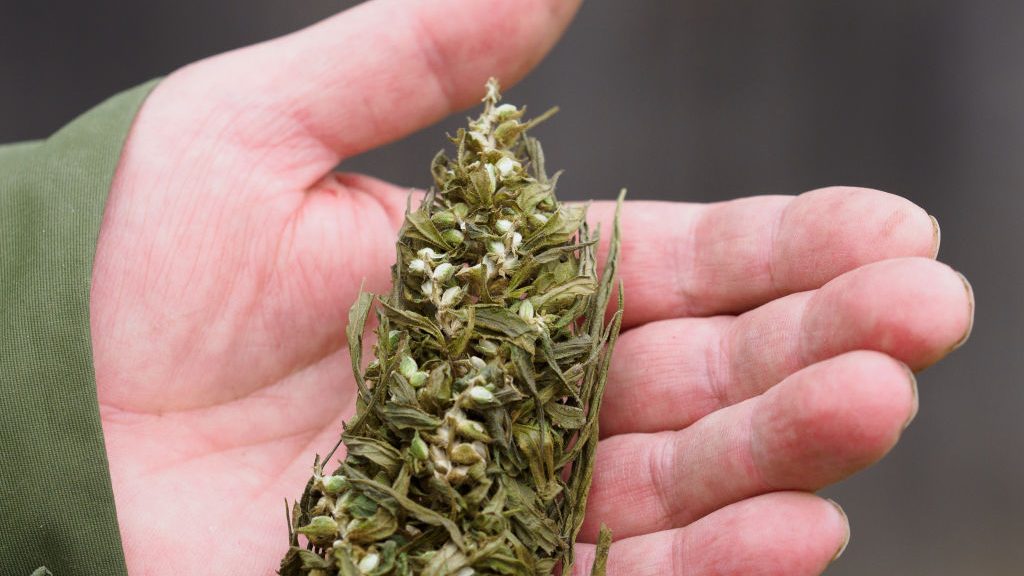
Missouri could become the first state to pass a voter-led effort to require courts to automatically forgive past marijuana crimes as part of a constitutional amendment to legalize recreational pot on November's ballot.
Of the 19 states where recreational marijuana is legal, only seven states require some sort of judicial forgiveness for those punished for committing crimes that have since been decriminalized, according to the advocacy group National Organization for the Reform of Marijuana Laws.
It was lawmakers in California, Connecticut, Vermont, Illinois, New York, New Jersey and Rhode Island who took action to provide amnesty for past marijuana crimes.
Missouri voters would be the first to spearhead what's called automatic expungement on their own, said John Payne, the campaign manager for the push to legalize recreational marijuana.
Get Connecticut local news, weather forecasts and entertainment stories to your inbox. Sign up for NBC Connecticut newsletters.
Payne said the goal is to allow people with pot-related convictions to “reclaim their lives.”
Weed Coverage:
“This is going to allow those people to live more full and complete lives,” he said. “That also helps society at large, because they’re essentially being somewhat locked out of the economy and productive lives by that burden. We’re going to remove that for them.”
Missouri’s Republican-led Legislature for years resisted addressing marijuana policies, prompting voters to lead a successful effort in 2018 to amend the state constitution to allow medical marijuana.
Thanks to another advocate-led ballot initiative, Missouri voters in November will decide whether to allow those age 21 and older to buy and grow weed for personal consumption and whether to grant automatic expungement to past marijuana-related crimes.
Recreational legalization proposals are also on the ballot this fall in South Dakota and Maryland. The Maryland measure would similarly require automatic expungements, although that proposal was referred to the ballot by state lawmakers.
The Missouri proposal would erase past marijuana-related convictions for nonviolent offenders and those whose convictions didn’t include selling to minors or driving while high.
Under current Missouri law, it’s up to past offenders to request a clean slate. Missouri lawmakers in 2016 passed legislation that allowed people to apply to expunge two misdemeanor or ordinance violations that carry jail time and one felony. Certain felonies, such as sex offenses and dangerous felonies, are not eligible for expungement.
Leslie Corbett, executive director of the low-income legal aid group Illinois Equal Justice Foundation, said she's concerned an Illinois law that's described as automatic expungement but requires past offenders to take action has been underused because it's confusing.
Corbett said the law, which has been described by supporters as automatic expungement because police records are immediately wiped, requires the majority of past offenders to request to also have their court records cleared.
“Folks don't realize that they still need to take action, even if it was auto-expunged,” she said.
In most cases, Payne said the Missouri amendment puts the responsibility on courts, not past offenders, to wipe records, although prisoners would need to petition courts for early release on marijuana charges.
The amendment gives courts six months to expunge past misdemeanors and a year for eligible felonies.
Marijuana sales would be taxed at 6% under the Missouri amendment, which the state Auditor's Office estimated would bring in at least $41 million a year. Funding is earmarked to pay for oversight, administration and the expungement process. Remaining funds would go to veterans' homes, public defenders and drug addiction treatment services.
Municipalities could tax marijuana sales at an additional 3%, or as much as $14 million a year.
Cost estimates compiled by the Missouri state auditor do not include expenses for administrative court costs related to clearing past marijuana convictions.



